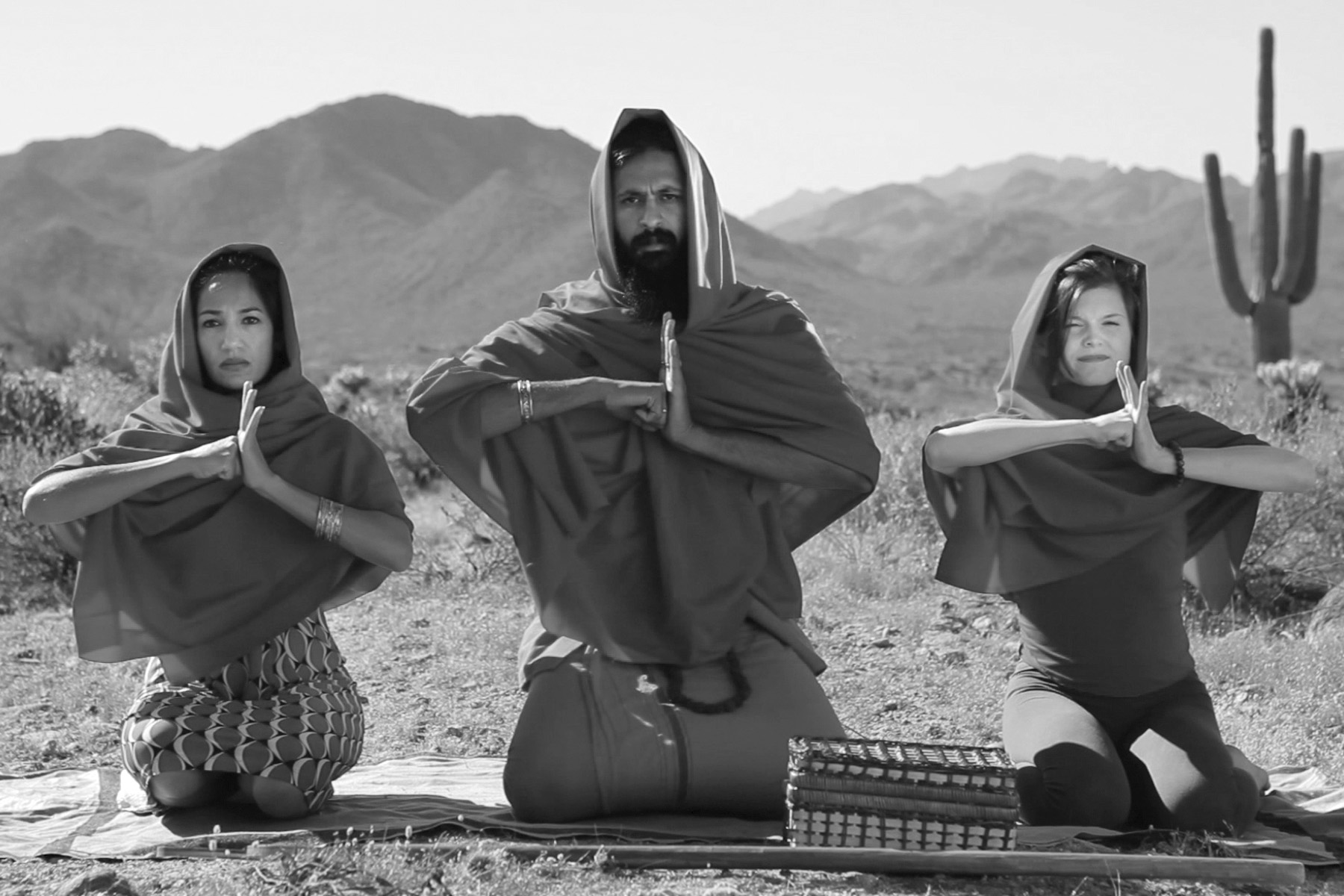From terse, academic upbraidings by Richard Dawkins, to the wit and eloquence of Christopher Hitchens’ broadsides, the past decade has witnessed a surge in public cries challenging the power of organized religion. Amid the continual talk of misconduct and immorality in the halls of self-proclaimed holy men, several unbelievers simultaneously began a multi-pronged offensive against theism. Recently, a young filmmaker named Vikram Gandhi nimbly joined the campaign in the documentary Kumaré: The True Story of a False Prophet.
Gandhi, who plays Kumaré’s eponymous hero, is the real-life, religiously wayward son of devout Hindu parents. After skeptically observing the growing American love affair with yoga and its tinge of eastern mysticism, Gandhi decided to document the many gurus associated with the practice and assess their claims of transcendent power. Gradually, the project evolved. Unable to find support for this profusion of supernatural claims, Gandhi decided to see whether it was possible for anyone, even himself, a former Columbia University student with a minor in Religion, to gain followers as a guru. Thus Kumaré was born.
The documentary follows Gandhi in the role of the ever-smiling Kumaré, as he teaches his disciples that the answers they seek require no guru save themselves, while Socratically insisting on his own ignorance. Rather than preaching piffle, Gandhi simply tells those looking for guidance that they must act in accordance with the way they imagine their ideal selves: cookie-cutter self-help seminar ideas rendered occult—and therefore alluring—by means of a few yoga poses and an Indian accent. Ghandi’s prescience in choosing a valid gospel is central to the film, and the measured thoughtfulness with which he emphasizes the universal accessibility of self-improvement is apparent.
To his credit, and in no small part due to his own upbringing, Gandhi is a good deal more delicate in his treatment of mysticism and religion than some of his contemporary atheists. Throughout the film, he respectfully listens to self-proclaimed spiritual practitioners, ranging from psychics to proponents of the Law of Attraction. Rather than ridiculing these outlandish beliefs (“We are from different planets,” says one woman matter-of-factly when introducing her partner), Gandhi seems to adopt a kinder, almost paternal approach: if a belief doesn’t affect others, and gives some hope in the struggle with grief or substance abuse, what’s the harm? The point of the matter, then, is to demonstrate that the edicts of a gatekeeper, like Kafka’s fierce guardian in Before the Law, are a dead letter. Neither priest, nor rabbi, nor imam hold the sacred wisdom necessary for enlightenment. While it’s not evocative or insightful enough for a second look, this idea is certainly salient enough to deserve greater public attention.
Don’t expect cinematographic miracles—the film consists of sober camerawork with the expected abundance of close-up shots, rightly making way for the discussion of the religious question. The score, which consists of Kumaré’s chants and drumming, is similarly forgettable. The final sequence, however, which deals with Kumaré’s unmasking, is impressive in spite of a modicum of cheesy slow-motion scenes.
Altogether, Kumaré is a sensible look at the cult of personality that invariably permeates all mystical traditions, suffused with Gandhi’s equable humour. Of all the gurus documented in the film, Kumaré seems to have the best approach.









